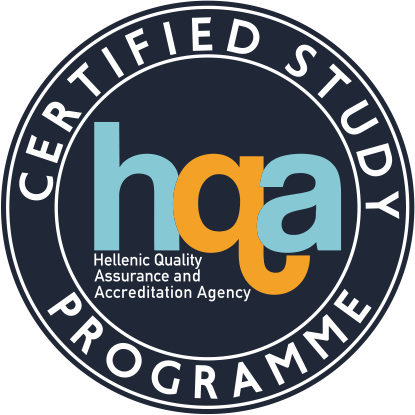Energy Economics
Undergraduate level | 5th semester | Elective Unit | ΟΚ3900
Credit Units ECTS: 5
Teaching Hours (Weekly): 3
Course Type: Scientific area
Prequisites: --
Teaching and Examination Language: Greek
For Erasmus students study course and exams are offered in English.

Course Material
Introduction to energy market and economic growth. Energy markets structure. Demand and supply of energy resources. Energy production and cost.Private and public energy resources markets. Energy market pricing Methods of external energy costs. Energy and investments. Valuing methods of energy resources. Energy efficiency-Consumers and Industry. Energy and economics of climatic change.
Learning Outcomes
On the completion of the course post graduate students are expected:
- gain comprehensive knowledge of the functioning of the energy market.
- understand the contribution of energy resources to the economy
- Investigate and analyze impacts of energy resource selection on economic quality of the natural environment.
General Skills
The course aims at developing the following skills:
- Strengthening his / her professional skills on the interdependent relationship between the economy and the use of energy resources.
- Search, analyze and synthesize data and information on the contribution of science to solving energy issues.
- Cultivation of students' research potential in energy economics with emphasis on energy policy
Learning and Teaching Techniques - Evaluation
Teaching Methods: Face to Face
Use of ICT:Use of ICTs during teaching, use of asynchronous tele-education platform for distant education and communication with postgraduate students, contact through e-mail.
Course Organization:
| Activity | Semester Work Load |
|---|---|
| Lectures | 35 |
| Study and Literature Review | 50 |
| Essay writing | 20 |
| Practical Issues | 40 |
| Total | 125 |
Assessment Methods:
Students’ assessment is based on:
- Written examination, which provides students with the 60% of the final overall grade, takes place after the completion of the course period.
- Writing of a scientific essay, based on a systematic and organized bibliographic review, whose score corresponds to 20% of the final total grade.and
- Exercise comprehension curricula that corresponds to 20% of the final total grade.
The abovementioned criteria are described to the students during the first teacher-student meeting, and are displayed in the e-class website throughout the semester.
Suggested Bibliography
- Karkalakos, S. And Polemis, M. (2015) Sustainable Development, Environment anD Energy, S. Karkalakos Publications (in Greek).
- Bhattacharyya, Subhes C. (2011) Energy Economics: Concepts, Issues, Markets and Governance. Springer.



